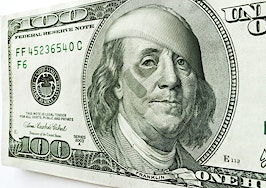The big news this week is an astounding historical revelation useful in the present, but before that a few current events.
In congressional testimony Janet Yellen acknowledged weakness in new economic data, but confirmed a continuing QE taper.
Even congressmen know to be delicate in debate with babes, and it’s a gas to watch their fidgeting caution with diminutive but flint-tough Yellen — especially when they are at such an IQ disadvantage to the Fed chairwoman.
The Weather Channel still controls economic data, but traders are suspicious that Stephanie Abrams is covering for a sliding economy.
The most important new news: China has devalued the yuan, reversing expectations for strengthening. The purpose: to aid its exports while its internal economy slows in the beginning of reform, and to compete with Japan’s devaluation. The price: U.S. anger.
Easy choice. All nations are trying to boost their exports and constrict imports. The result of this simultaneous impossibility: All are exporting deflation, low wages, and unemployment in a competitive spiral barely under control.
Although markets are nervous about Tsar Nasty the Short’s intentions in Ukraine, next week’s flood of March data is more problematic, rates here trickling up.
On to history. Historical understanding is usually so delayed that it’s merely sustenance for argument, not much help with current decisions. Important matters of government are typically classified for a long time, to protect the embarrassed. In 1974 Britain revealed the “Ultra” secret — that we had read German military mail in real time throughout World War II, which made ridiculous every memoir written in the prior 30 years.
The Fed at the end of each meeting issues a “statement,” only a couple of paragraphs long and nearly opaque. Former Fed Chairman Ben Bernanke introduced the practice of releasing “minutes” of meetings one month after the fact.
These usually run about 10 pages, but do not identify speakers and are paraphrased. In pin-the-tail-on-the-donkey fashion, we try to judge the shift in consensus from the minutes’ mention of the number of speakers advocating a particular policy: “several … a few … a couple … many. …”
The Fed releases verbatim transcripts of meetings, speakers identified, five years later. Last week, the entire 2008 volume on the Fed’s website.
Five years is a long time, unless you’re in the seventh year of a rolling crisis. I suppose there are some adults who do not remember 2008, or especially the week of the Fed’s meeting on Tuesday, Sept. 16, 2008. Every school should teach the events of that week.
We let Lehman faceplant on Sunday the 14th. The stock market began to free-fall. Tuesday night, after the Fed meeting, the world’s largest insurance company, AIG, joined the dead. The Fed had to revivify on the fly, still a huge matter of dispute.
By Thursday Bernanke pulled the red cord in the corner, and went to Congress to say that unless it came up with a trillion bucks, then within a couple of days credit cards would no longer work.
Barney Frank supposedly arrived at that meeting running up the Capitol steps with his shirttail out. The world had ended, simple as that.
You would not know the emergency from the transcript of the Fed’s Sept. 16 meeting. The leaders are already deep in crisis response and the meeting is a recess, a respite from the storm. New York Fed CEO Bill Dudley provides a technical recitation of global collapse and the Fed flooding cash to support banks worldwide. The meeting’s tone is laconic, ho-hum as can be.
Except for the idiots. The transcript reads as a meeting conducted for the idiots, to let them have their say while the others saved the world. Most incredible: They are still not only idiots, but still there.
These men should hope that their grandchildren never take a course on banking and read what their granddaddies had to say in the all-time deadliest bank run. All are presidents of regional Feds: Fisher, Plosser, Lacker, Bullard and Hoenig (now FDIC), their only worry “inflation.”
Inflation? Clueless.
Plus the obtuse and vacuous Tim Geithner.
The others — Bernanke, Yellen, Dudley, Rosengren (especially), and quiet Kohn — pick a 2008 meeting to read, find these inspired, brilliant heroes. And give thanks.
Lou Barnes is a mortgage broker based in Boulder, Colo. He can be reached at lbarnes@pmglending.com.




